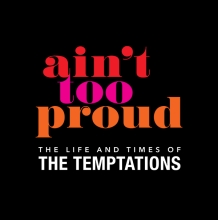Full Synopsis
Full Synopsis
In the course of one twenty-four hour workday, the audience meets and hears the stories of various workers.
The musical begins Monday morning as the ensemble comes out, introduces themselves, and sings "All the Livelong Day." First, Mike Dillard, a steelworker, talks about his job and thinks about the man who drives the car made with his steel. The Workers, driving their cars, are held up in a Traffic Jam, then they turn their cars over to Al Calinda, the parking lot attendant. Al tells his life story and sings about his obsession with cars in the song, "Lovin' Al."
Meanwhile, in an office filled with cubicles, Amanda McKenny and her fellow workers talk about their work days in a time of computers and corporate mergers. Amanda and her co-workers attempt to do as little work as possible. In contrast, her boss, Rex Winship, loves to work and he takes an overseas call. Rex hopes to retire and become a teacher, so he can pass on his business knowledge to the next generation.
Next, an aging third grade teacher, Rose Hoffman greets her students as they come in to class. She laments the changing teaching methods and different generations in the song, "Nobody Tells Me How." Rose then remembers her favorite student, Pam "Babe" Secoli, who is now a checker at the Treasure Island Supermarket. In "I'm Just Movin'," Babe and two other checkers check-out and bag groceries for shoppers. Roberto, a bag boy, bags lettuce for Kate Rushton, a housewife, as he remembers his migrant worker family. He sings "Un Mejor Dia Vendra" with Spanish Workers.
Kate goes home with her groceries where Conrad, the UPS deliveryman, startles her. Conrad talks about the low points of his day (being bitten by dogs) and the high points (meeting pretty housewives). Alone in her kitchen, Kate sings about her mundane tasks in "Just a Housewife." As the lights fade on Kate, Roberta Victor, a hooker, comes on and announces she never wanted to be a housewife. She talks about turning her first trick and how women are taught to hustle. Candy Cottingham, a political fundraiser, says her work is hard because she has to separate people from their money. Candy sees herself as an entertainer while Roberta does not see her occupation as being different from someone who works on an assembly line.
The lights fade on Roberta and Candy and come up on Grace working in a suitcase factory. In the song "Millwork," Grace and her fellow Millworkers lament their boring, monotonous jobs and begin to daydream about their lost youths. At the last hour of the workday, all the workers reflect on their regrets and the lives they might have had in the song "If I Could ve Been."
As the sun sets, Anthony Palazzo, a stone mason, wants to lay one more stone before he quits for the day. The song The Mason describes how a mason's work (building stone houses) lasts beyond his lifetime. As evening sets in, two truck drivers, Frank Decker and Dave, drive across the country in the song Brother Trucker. Frank, on a run from Milwaukee, tries to call his dispatcher but only gets an operator (Heather) instead. Heather, Sharon Atkins (a receptionist), and Enid Dubois (a telephone solicitor) talk about their lives over the phone. As dinnertime sets in at a restaurant, Delores, a waitress, turns her job of serving food into a one-woman show in the song It s an Art. Then, Joe Zutty, who is retired, comes on and describes his life in the song Joe. He keeps busy by traveling and going to fires, like the one where the audience meets Tom, the fireman, running out of a burning building. Tom has always wanted to be a fireman. However, Maggie, who's cleaning offices at two a.m., has always wanted to sing and play piano. In the song "Cleaning Women," Maggie dreams of a better life for her daughter, the next generation. Maggie leaves and the next generation comes on in the persona of Ralph Werner, a nineteen-year-old salesman who dreams of starting his own business and having his own family. In contrast, Charlie Blossom, a twenty-year-old copy boy, dreams of killing everyone at his job.
Then, Mike Dillard comes back out and laments the mistakes he s made and the lessons he hopes to pass on in the song "Fathers and Sons." The ensemble comes out, points to a building, and describes the different jobs they each have had there in "Something to Point To." The musical ends with a collective acknowledgment of the accomplishments of each of them.




